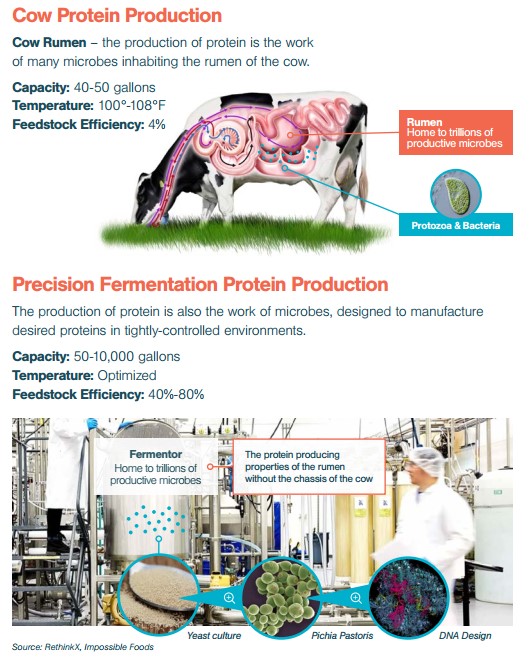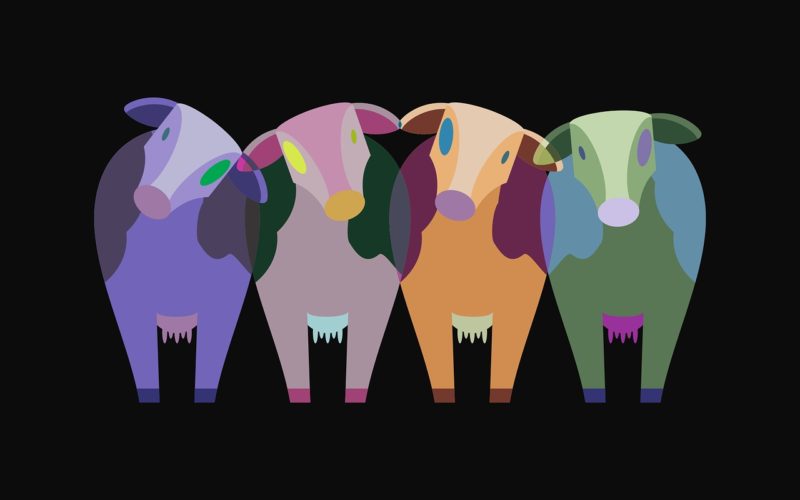Let’s imagine for a moment that all the things that we rely on from cows – meat, dairy, leather, even pet food – could be substituted without the need to exploit a single animal. What would that world look like? RethinkX has explored and answered this very question in their ground-breaking work “Rethinking Food and Agriculture”.
They estimate that a ninety percent reduction in demand for cow products will have the following dramatic implications:
– Sixty percent of the land currently being used for livestock and feed production, representing one-quarter of the continental U.S., will be freed for other uses. This could include reforestation and carbon sequestration.
– Crop farming volumes for soy, corn and alfalfa – typical feed for farmed cattle – will fall by fifty percent
– Environmental benefits will be profound, with net greenhouse gas emissions from the sector falling by two thirds, and with a significant reduction in deforestation, water scarcity, and aquatic pollution.
Just hypothetical? According to RethinkX, the disruption of the cow has already started, and it’s in the form of rapid advances in precision fermentation, a process that allows us to program microorganisms to produce almost any complex organic molecule, including modern foods.
Precision fermentation offers a production system that is completely decentralized and much more stable and resilient than industrial animal agriculture, with fermentation farms located in or close to towns and cities.
These rapid advances are in stark contrast to the existing industrial livestock production model, which has all but reached its limits in terms of scale and efficiency. As an inefficient and economically vulnerable part of this system, cow products could be the first to feel the force of modern food’s disruptive power.

RethinkX predicts that product after product that we extract from the cow will be replaced by superior, cheaper, modern alternatives, triggering a death spiral of increasing prices, decreasing demand, and reversing economies of scale for the industrial cattle farming industry, which will collapse long before we see modern technologies produce the perfect, cellular steak.
Modern foods have already started disrupting the ground meat market, but once cost parity is reached, adoption could tip and accelerate exponentially.
This is obviously bad news for the livestock and associated industries, but the benefits to society at large are massive. We have already mentioned the environmental benefits. But with the disruption also comes lower prices, higher quality food and nutrition, and reduced trade dependence for many countries.
You might think this vision will be a long time coming. But RethinkX predicts that ninety percent of the disruption will be complete by 2035. The changes have already started.
For example rennet enzymes, used for cheese making, used to come from the stomachs of veal calves. Today, more than ninety percent of the rennet used in cheese production is being produced by precision fermentation. More readily recognizable is the rise of companies such as “Beyond Meat” who have already made inroads into the burger market with their plant-based meat alternatives.
RethinkX offers a startling and credible vision for the future of food. And one thing for sure, it offers a bright hope in the battle against climate change.
IMAGE CREDIT: thejakesmith/Pixabay
